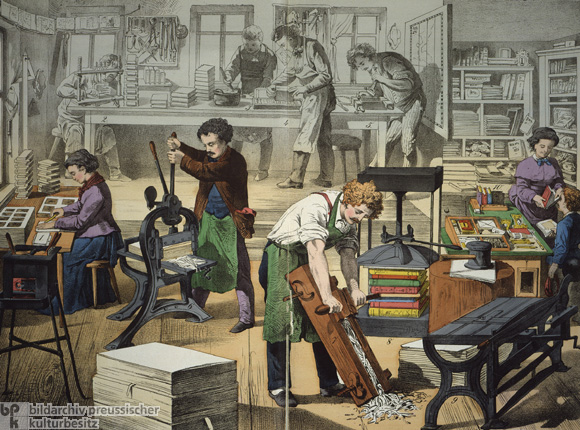Should America Bring Back a Guild System of Education?
 We seem to send high schoolers off to college automatically, out of habit, no longer questioning the wisdom of doing so. What if we discovered that being 18 years old is actually the worst time for kids to participate in higher education?
We seem to send high schoolers off to college automatically, out of habit, no longer questioning the wisdom of doing so. What if we discovered that being 18 years old is actually the worst time for kids to participate in higher education?
Why not get them started in a trade much earlier? The guild system worked well throughout history, and an updated version of it might be just what we need today. Ask Benjamin Franklin.
It used to be that a sound education was completed by the eighth grade, with self-learning and experience kicking in after that. Now, compulsory education means that high schools are packed with people who don’t want to learn and who bring down the educational experience for those who are motivated. Hardly a springboard for launching a period of intense study in college.
For high schools, the argument is heard repeatedly that being in school prevents even greater social ills, such as being in gangs, unemployment, crime, shiftlessness, and a burden on the welfare system. But go back even a century or two to see what young people did who completed their schooling. Adolescence was not artificially extended as it is today. Slackers were allowed to drift off into self-appointed poverty or homelessness, as a motivational lesson to others.
Before minimum wages undercut incentives, didn’t youth align themselves as apprentices to adults who could pass on the basics of a trade? We have something like that with internships today: students receiving on-the-job experience but usually no money as such, a form of deferred salary. Society didn’t have “safety nets” wherever you looked. You were serious about your employment, even it meant long hours of just tediously helping. You learned.
Apprentices couldn’t goof off, dress weirdly with too much makeup, wear body piercing and tattoos, dream about partying, be late for work, or not show up. There was no pride in trying to out punk your peers. They weren’t puffed up on fake self-esteem, but had to slowly earn the respect of those they worked for.
Parents and teachers tend to ridicule the dignity of labor today. No wonder that we have to import labor and send manufacturing jobs off to countries where people are still willing to work, while feminists scorn women who pursue homemaking as a career. Our trade industries are pathetic vestiges of what they once were, both in terms of available workers and the knowledge they should have. With decreased availability of workers, prices go up, and the quality of service goes down.
High school and college today just merge together seamlessly, with students never breaking out of the carefree days of adolescence. And are those outside of vocational schools or technology programs really preparing themselves for livelihoods beyond sales and welfare?

 We seem to send high schoolers off to college automatically, out of habit, no longer questioning the wisdom of doing so. What if we discovered that being 18 years old is actually the worst time for kids to participate in higher education?
We seem to send high schoolers off to college automatically, out of habit, no longer questioning the wisdom of doing so. What if we discovered that being 18 years old is actually the worst time for kids to participate in higher education?